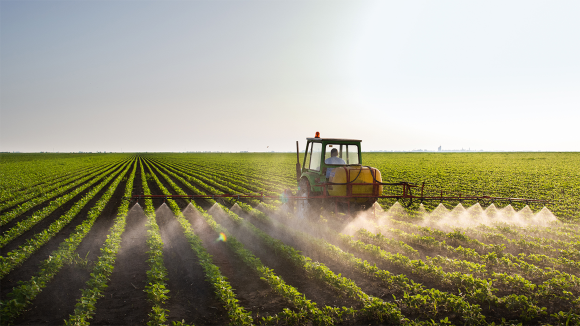 Rashad Rasool Khan is an Associate Professor at the Department of Entomology, University of Agriculture, Faisalabad, Pakistan. His research interest is to determine and understand the mechanism of resistance development in insects and its diminution. He is also involved in the evaluation of the biocidal efficacy of insecticides against serious insect pests and their natural enemies. Dr Khan has been an Editorial Board Member of Scientific Reports since 2022.
Rashad Rasool Khan is an Associate Professor at the Department of Entomology, University of Agriculture, Faisalabad, Pakistan. His research interest is to determine and understand the mechanism of resistance development in insects and its diminution. He is also involved in the evaluation of the biocidal efficacy of insecticides against serious insect pests and their natural enemies. Dr Khan has been an Editorial Board Member of Scientific Reports since 2022.
 Srinivasan Ramasamy is the Lead Entomologist at the World Vegetable Center and is currently leading the Flagship Program for Safe and Sustainable Value Chains. His research focuses on host-plant resistance, biological control, chemical ecology of insect pests, molecular entomology, and integrated pest management in vegetable crops. Dr. Ramasamy has been an Editorial Board Member for Scientific Reports since 2019.
Srinivasan Ramasamy is the Lead Entomologist at the World Vegetable Center and is currently leading the Flagship Program for Safe and Sustainable Value Chains. His research focuses on host-plant resistance, biological control, chemical ecology of insect pests, molecular entomology, and integrated pest management in vegetable crops. Dr. Ramasamy has been an Editorial Board Member for Scientific Reports since 2019.
 Sengottayan Senthil-Nathan, the Professor and Head in Sri Paramakalyani Centre for Excellence in Environmental Sciences, Manonmaniam Sundaranar University, India. Professor Senthil-Nathan’s main area of focus for research comprises of prospecting the biologically active compounds from botanicals for the betterment of crop production and protection as well as vector control. Dr. Senthil-Nathan has been an Editorial Board Member for Scientific Reports since 2015.
Sengottayan Senthil-Nathan, the Professor and Head in Sri Paramakalyani Centre for Excellence in Environmental Sciences, Manonmaniam Sundaranar University, India. Professor Senthil-Nathan’s main area of focus for research comprises of prospecting the biologically active compounds from botanicals for the betterment of crop production and protection as well as vector control. Dr. Senthil-Nathan has been an Editorial Board Member for Scientific Reports since 2015.

